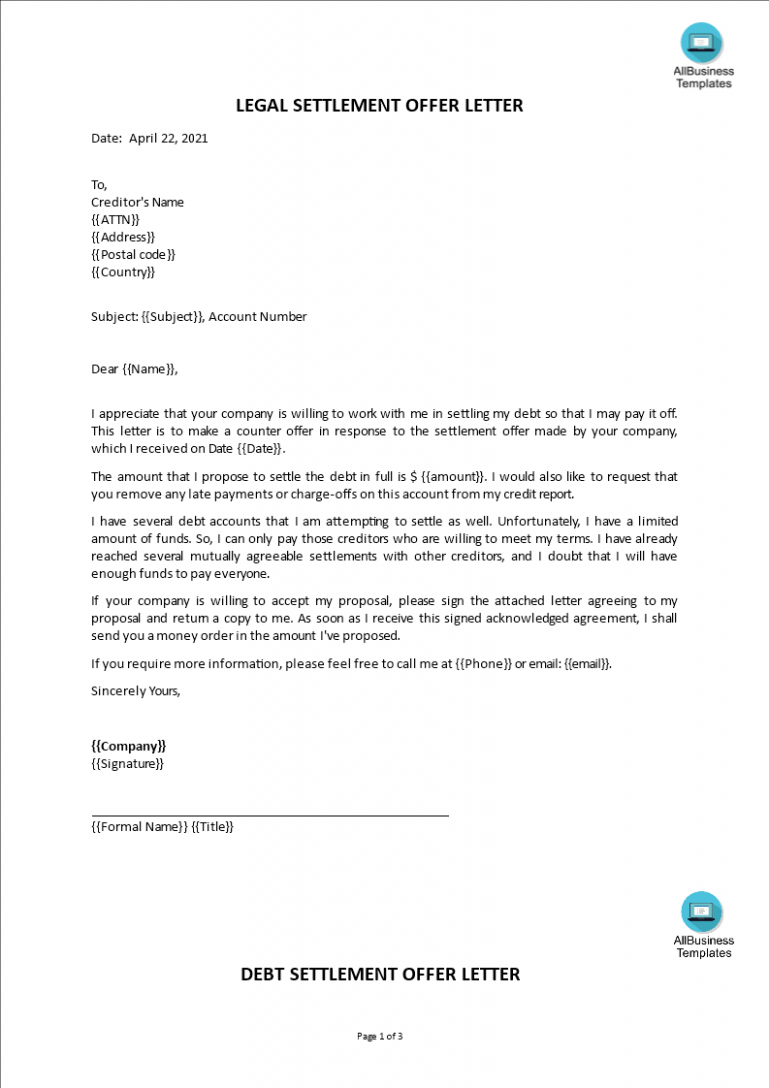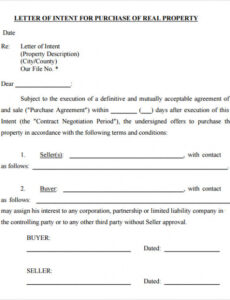Debt Settlement Offer Template Taxpayers experiencing tax obligation financial obligation issues seldom contrast the IRS deal in compromise with the Phase 13 personal bankruptcy. Frequently, the Phase 13 will give a more certain remedy for the taxpayer to fix tax obligation debt. This post analyzes the relative benefits of both the offer in concession as well as Chapter 13.

An deal in concession might be one of the most marketed tax solution. You can not listen to radio or see TV without being pounded by advertisements to settle your tax obligation financial debt. Usually the advertisements announce that the IRS has actually introduced that kindness in the collection of the tax obligation financial obligation exists for a minimal time. The unfortunate fact is that the kindness statement by the internal revenue service was frequently for various other issue area, such as tax sanctuaries. The IRS rejects about 85 percent of all deals in concession filed because of doubt as to collectibility. Deals in concession are typically filed because the taxpayer thinks the tax obligation financial debt can not be paid, Question regarding Collectibility is the most usual sort of deal in compromise. Various other sorts of deals in compromise are outside the scope of this short article.
The advantage of the offer in compromise is that the tax responsibilities, including the associated fines and rate of interest, are minimized to the amount the IRS and also the taxpayer agree can be paid. Both events have to agree to the regards to the offer in compromise. The offer in compromise is a agreement in between the internal revenue service and also the taxpayer. The regards to the contract can be applied versus the taxpayer in addition to the internal revenue service.

Acceptance of the deal in compromise happens when the IRS believes that the deal goes to the very least as much as could be gathered by the internal revenue service over the 10 year life of the statute of constraints. The IRS will certainly turn down an offer that is for a lower quantity than it might or else accumulate.
The IRS utilizes a uniform collection of economic criteria that are not adaptable in both the analysis of the amount paid monthly in an installment agreement as well as in an deal in compromise. These criteria restrict the expenses for living that the taxpayer can assert are required for living. The criteria consist of food, real estate and energies, transportation, and expense health expenditure. The criteria might cause drastic issues for a taxpayer with a reasonably higher standard of life. Business expenses are not influenced by the standards.
The evaluation of the minimum deal in compromise that will make the offer processable is the equity in the taxpayer’s properties plus the quantity that could be paid in an installation arrangement over a specified period of time. The duration of the future regular monthly settlements thought about by the internal revenue service depends upon how the offer will certainly be paid by the taxpayer. The internal revenue service desires 48 months of regular monthly settlement if the taxpayer offers a lump sum. The IRS desires 60 months of month-to-month settlement if the deal is to be paid in a short-term arrangement of two years or less. However, the internal revenue service will certainly take into consideration accurate concerns such as retirement as well as wellness of the taxpayer in reducing the period of the multiplier.



